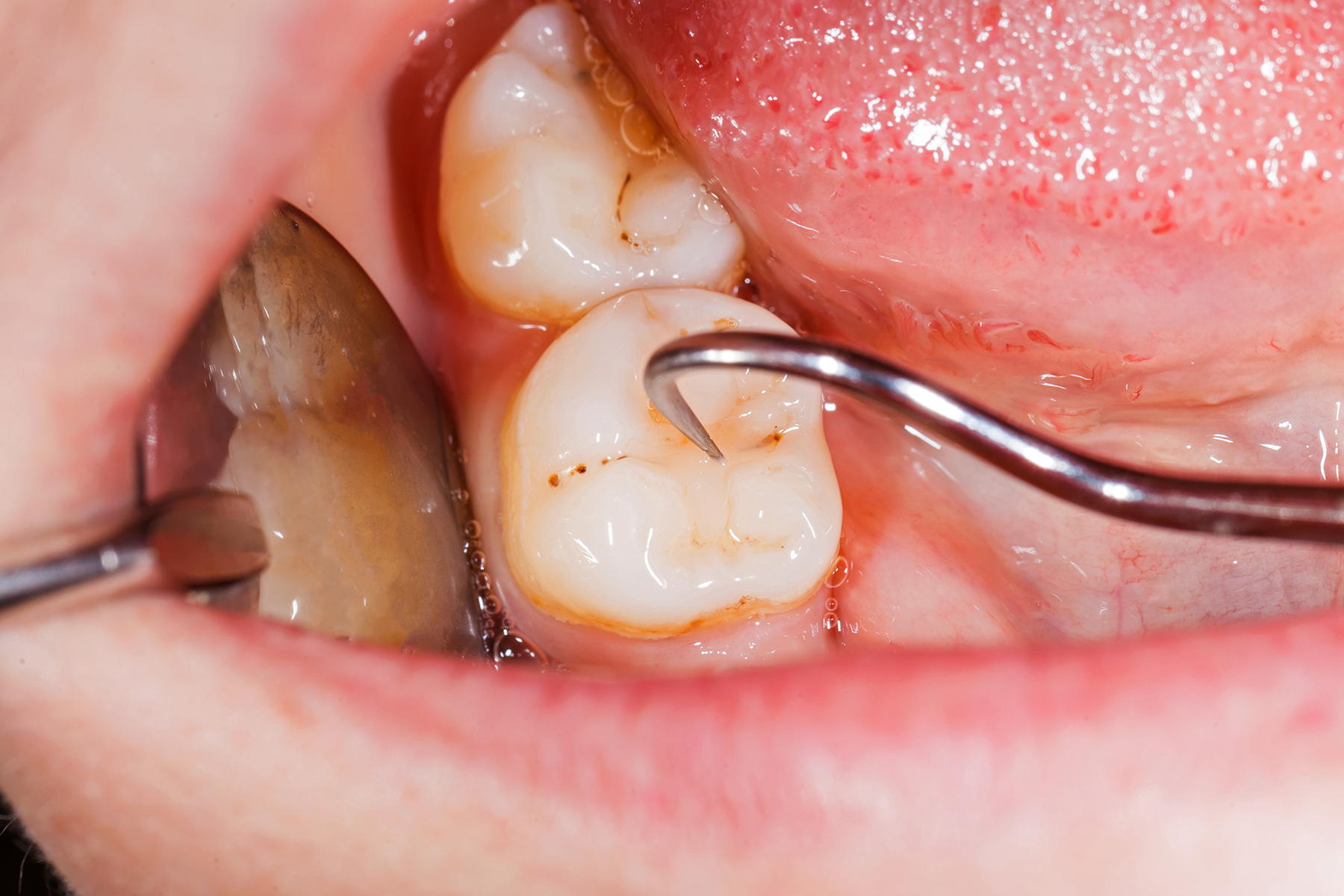Oral health plays a vital role in one’s overall health. Dental problems such as tooth decay, gum disease, and sensitive teeth can affect people of all ages and, if left untreated, may lead to more serious complications like infections, tooth loss, and even systemic health issues such as heart disease and diabetes.
Understanding the causes, symptoms, prevention strategies, and treatment options for these common conditions can help you maintain a healthy smile and improve your quality of life.
Dental Decay (Cavities)
Dental decay, also called cavities or caries, happens when acids produced by bacteria wear away the enamel—the hard, protective outer layer of your teeth. This damage is often the result of poor oral hygiene and frequent consumption of sugary or starchy foods.
Causes:
- Infrequent brushing or flossing
- A diet high in sugar and starch
- Lack of fluoride, which helps strengthen enamel
- Dry mouth, which reduces the ability to wash away food particles and neutralize acids
Symptoms:
- Tooth pain or sensitivity to hot or cold
- Visible holes or pits in the teeth
- Dark spots or discoloration
Prevention:
- Brush twice daily with fluoride toothpaste
- Floss every day
- Limit sugary and acidic foods
- Use fluoride mouthwash
- Visit your dentist regularly
Treatment:
- Fillings, crowns, or root canals depending on the severity of the decay
Gum Disease (Periodontal Disease)
Gum disease is an infection and inflammation of the gums caused by plaque and tartar buildup. It ranges from mild (gingivitis) to severe (periodontitis), and it can result in gum recession, tooth loss, and bone damage if left untreated.
Stages:
- Gingivitis – Early stage with red, swollen, or bleeding gums
- Periodontitis – Advanced stage involving loss of bone and gum tissue
Causes:
- Poor oral hygiene
- Smoking or tobacco use
- Genetic predisposition
- Poor nutrition (especially vitamin C deficiency)
- Medical conditions like diabetes or medications that reduce saliva production
Symptoms:
- Red, swollen, or bleeding gums
- Persistent bad breath
- Receding gums
- Loose or shifting teeth
Prevention:
- Brush and floss daily, including along the gumline
- Avoid tobacco use
- Maintain a balanced diet
- Schedule regular dental cleanings and check-ups
Treatment:
- Professional cleanings (scaling and root planing)
- Medications or antibiotics for infection
- Surgery for advanced cases (e.g., flap surgery or bone grafts)
Sensitive Teeth (Dentin Hypersensitivity)
Tooth sensitivity causes sharp, sudden pain in response to hot, cold, sweet, or acidic foods and beverages. It often occurs when the enamel wears down or the gum line recedes, exposing the inner layers of the tooth.
Causes:
- Enamel erosion from aggressive brushing or acidic foods
- Gum recession exposing sensitive tooth roots
- Cracked or chipped teeth
- Tooth decay
- Teeth whitening treatments (temporary sensitivity)
Symptoms:
- Sharp pain when consuming hot or cold items
- Discomfort when brushing or flossing
Prevention:
- Use a soft-bristled toothbrush
- Brush gently and avoid acidic foods and beverages
- Use toothpaste formulated for sensitive teeth
- Maintain proper oral hygiene
Treatment:
- Desensitizing toothpaste
- Fluoride treatments or sealants to strengthen enamel
- Dental procedures for underlying issues (e.g., fillings, gum grafts)
Conclusion
Maintaining good oral health is key to preventing and managing common dental problems like cavities, gum disease, and tooth sensitivity. With daily care, healthy habits, and regular dental visits, you can protect your teeth and gums and enjoy a pain-free smile for years to come. For any concerns or symptoms, consult a dental professional for personalized advice and treatment options.

